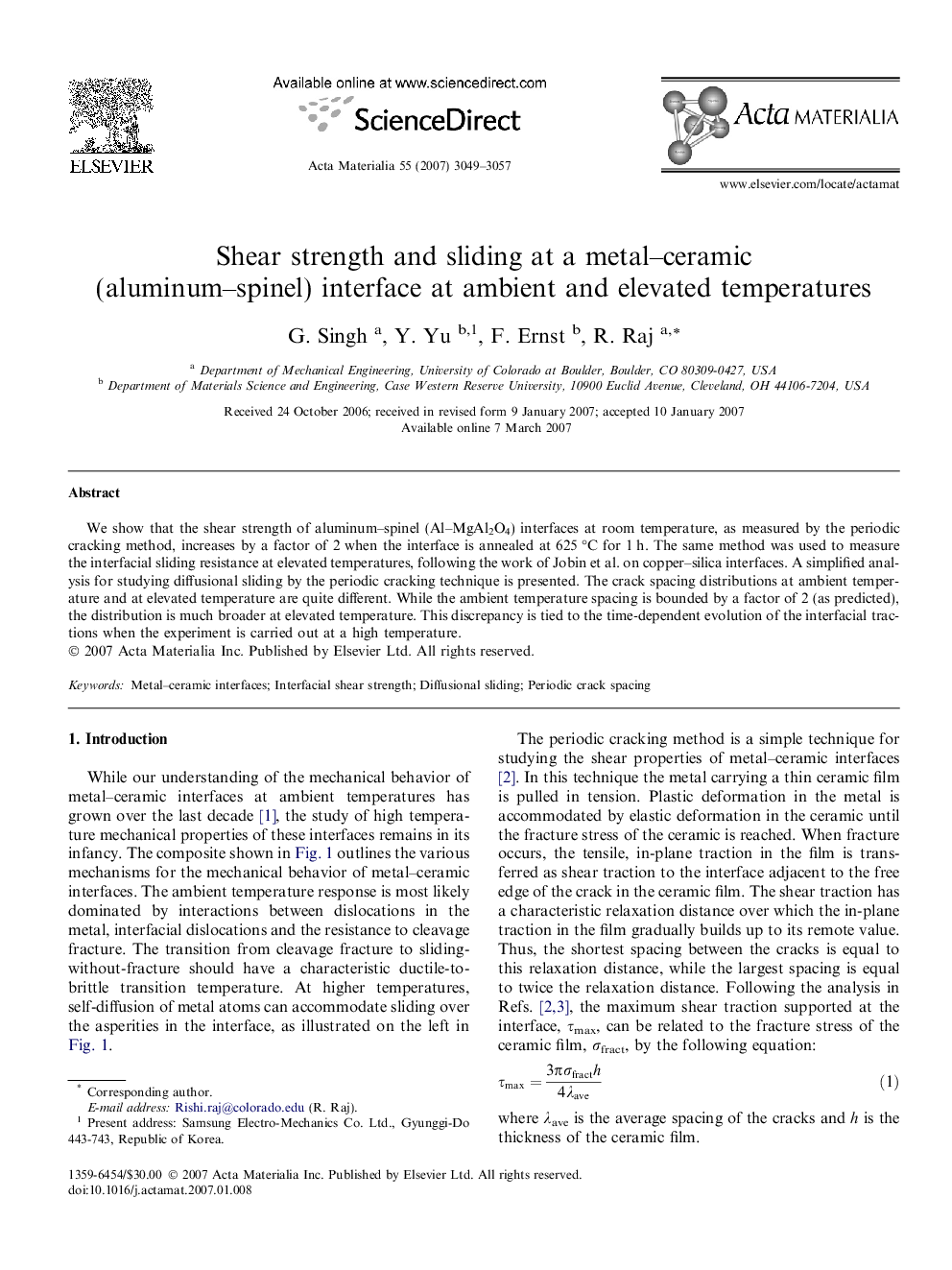| Article ID | Journal | Published Year | Pages | File Type |
|---|---|---|---|---|
| 1449687 | Acta Materialia | 2007 | 9 Pages |
We show that the shear strength of aluminum–spinel (Al–MgAl2O4) interfaces at room temperature, as measured by the periodic cracking method, increases by a factor of 2 when the interface is annealed at 625 °C for 1 h. The same method was used to measure the interfacial sliding resistance at elevated temperatures, following the work of Jobin et al. on copper–silica interfaces. A simplified analysis for studying diffusional sliding by the periodic cracking technique is presented. The crack spacing distributions at ambient temperature and at elevated temperature are quite different. While the ambient temperature spacing is bounded by a factor of 2 (as predicted), the distribution is much broader at elevated temperature. This discrepancy is tied to the time-dependent evolution of the interfacial tractions when the experiment is carried out at a high temperature.
